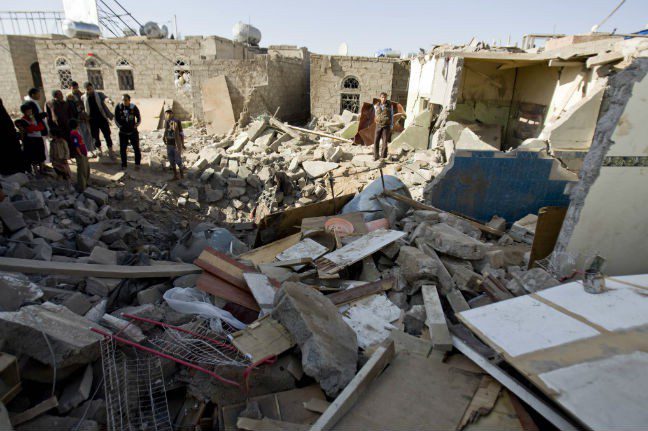“The main thing the people are fearing is the silence of the world.” That’s what Nuha, an aid worker for Oxfam in Yemen, told The New York Times earlier this week about the conflict now affecting millions of ordinary people in her home country.
By sharing the reality of civilian Yemenis caught up in that conflict, Nuha is helping to break that silence. Last week she shared a firsthand perspective on life in the midst of airstrikes and food shortages with news outlets like the Times, Al Jazeera, and National Public Radio.
Here’s more of Nuha’s story in her own words:
In September [2014], the insecurity started. It was like Yemen hit the rewind button, and after the feeling of positive change that started in 2011 [with the Arab Spring] we went back to the uncertainty of before.
On March 25, the airstrikes began. At first, the streets were empty – it was like they had been abandoned. It was scary. But today, despite reports of the death toll rising, there are people in the streets because they have started to cope with life now. For me and my fellow Yemenis, living in fear and never knowing what’s around the corner: this is ‘normal.’
What makes me really sad is that this prolonged insecurity has become normal to me, my friends, and my family. People with guns and armored vehicles in the street have become normal to see every day before you go to school, to work, to the market, when of course this is not [normal]. Now we can add airstrikes to that list.
Even if we survive the bombs we are running out of food. Yemen imports practically all of its food, petrol, everything. Now our borders are closed and there are no flights coming in or supply ships docking.
My brother went to buy food yesterday; he said that several shops were out of flour. There was none in the markets close to where I live, either. When you go out you see long queues of cars waiting for petrol at the gas stations. Yemen is witnessing a real food and fuel crisis.
At the moment humanitarian agencies such as Oxfam are trying to reach the areas where people are caught up in the fighting to give them the aid that they need. But we need the access and security to go where these people are and in many places it is simply too dangerous at the moment. Where it is safe to do so, Oxfam is already assessing the impact of the conflict on people’s lives and the needs they have, so we can plan a quick response.
I am usually optimistic, but I’m not now. Even if the conflict ends soon the humanitarian situation will unfold. Then the shock and the extent of the suffering here in Yemen will become apparent. Only then we will know what this conflict has left behind.
You can help deliver clean water and emergency relief to those who need it most in Yemen. Please donate to the International Crisis Fund
